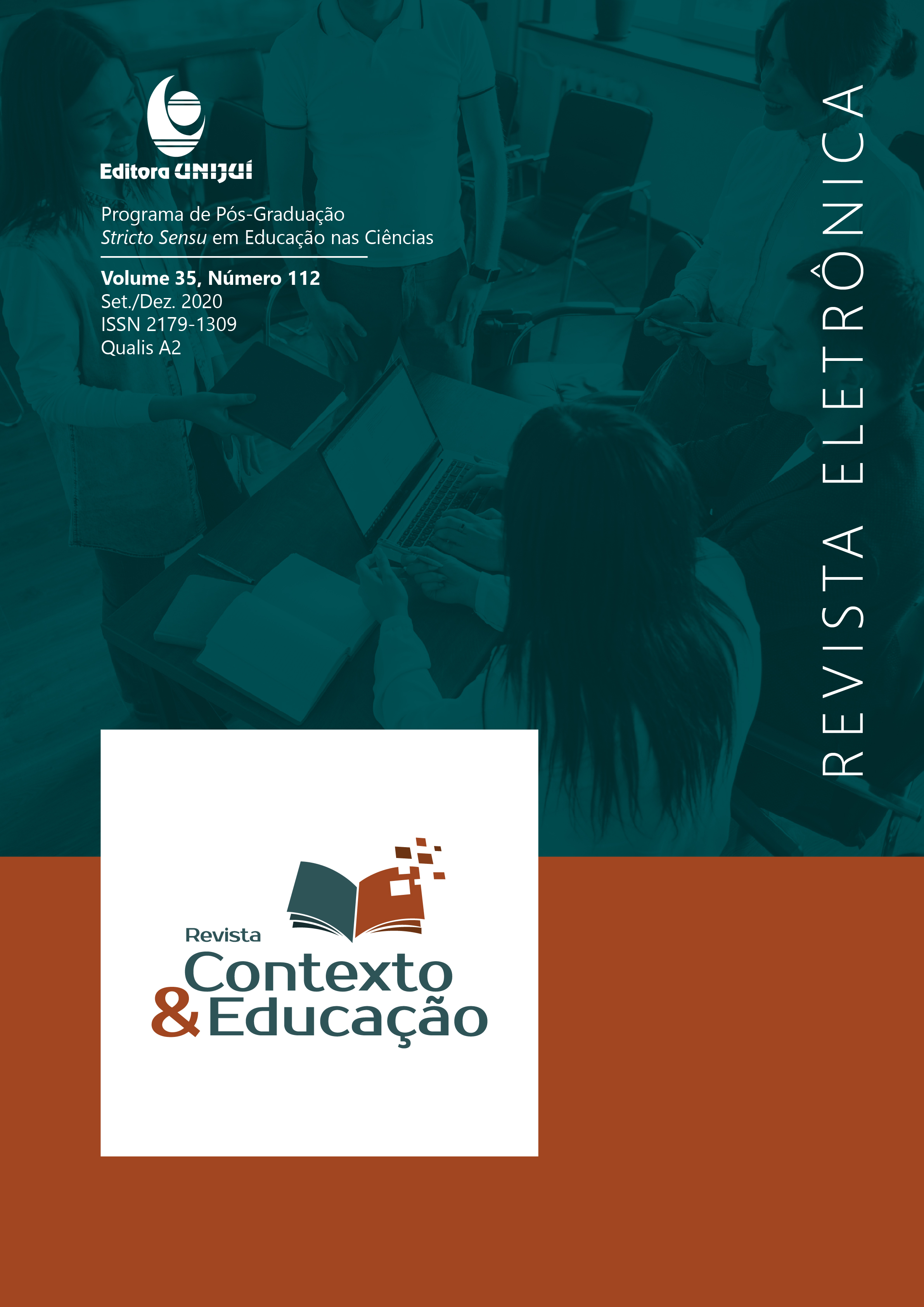CURRÍCULO INTEGRADO E FORMAÇÃO PROFISSIONAL NO PROEJA: CONCEPÇÕES ACERCA DO ENSINO POR ÁREA DO CONHECIMENTO
DOI:
https://doi.org/10.21527/2179-1309.2020.112.117-133Palavras-chave:
Atuação Docente no PROEJA. Sujeitos Jovens e Adultos. Integração entre Educação Básica e Profissional.Resumo
Este trabalho discute questões que permeiam a oferta de Ensino Médio integrado ao PROEJA, no IFFar. Em perspectiva qualitativa, a pesquisa foi desenvolvida em meio à realização de um Estágio da Licenciatura em Ciências Biológicas, com uma turma do Curso Técnico em Edificações Integrado PROEJA. Objetivando problematizar a integração entre Educação Profissional e Ensino Médio e a organização curricular por áreas do conhecimento, o estudo contou com uma entrevista semiestruturada com alunos do curso, para produção de dados, analisados sob as premissas da Análise Textual Discursiva (ATD). Os subsídios teóricos se constituem de documentos legais e institucionais sobre a temática e autores que trabalham com a articulação entre educação e trabalho, formação de professores e processos de ensino e aprendizagem de jovens e adultos. Por meio de categorização, conforme a ATD, foram identificadas concepções de estudantes acerca do processo de ensino e aprendizagem de jovens e adultos e a relação dos conhecimentos da área básica com a técnica. Nesse contexto, a premissa elaborada é que jovens e adultos estudantes do PROEJA reconhecem a articulação entre a formação acadêmica e o mundo do trabalho, indicando que a organização curricular do seu curso tem embasamento nas concepções de currículo integrado.
Downloads
Publicado
Como Citar
Edição
Seção
Licença
Ao publicar na Revista Contexto & Educação, os autores concordam com os seguintes termos:
Os trabalhos seguem a licença Creative Commons Atribuição 4.0 Internacional (CC BY 4.0), que permite:
Compartilhar — copiar e redistribuir o material em qualquer meio ou formato;
Adaptar — remixar, transformar e criar a partir do material para qualquer fim, inclusive comercial.
Essas permissões são irrevogáveis, desde que respeitados os seguintes termos:
Atribuição — os autores devem ser devidamente creditados, com link para a licença e indicação de eventuais alterações realizadas.
Sem restrições adicionais — não podem ser aplicadas condições legais ou tecnológicas que restrinjam o uso permitido pela licença.
Avisos:
A licença não se aplica a elementos em domínio público ou cobertos por exceções legais.
A licença não garante todos os direitos necessários para usos específicos (ex.: direitos de imagem, privacidade ou morais).
A revista não se responsabiliza pelas opiniões expressas nos artigos, que são de exclusiva responsabilidade dos autores. O Editor, com o apoio do Comitê Editorial, reserva-se o direito de sugerir ou solicitar modificações quando necessário.
Somente serão aceitos artigos científicos originais, com resultados de pesquisas de interesse que não tenham sido publicados nem submetidos simultaneamente a outro periódico com o mesmo objetivo.
A menção a marcas comerciais ou produtos específicos destina-se apenas à identificação, sem qualquer vínculo promocional por parte dos autores ou da revista.
Contrato de Licença (para artigos publicados a partir de outubro/2025): Os autores mantém os direitos autorais sobre seu artigo, e concedem a Revista Contexto & Educação o direito de primeira publicação.


